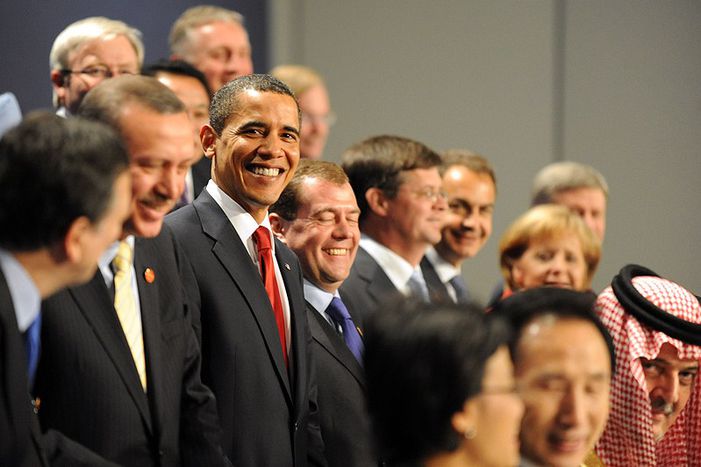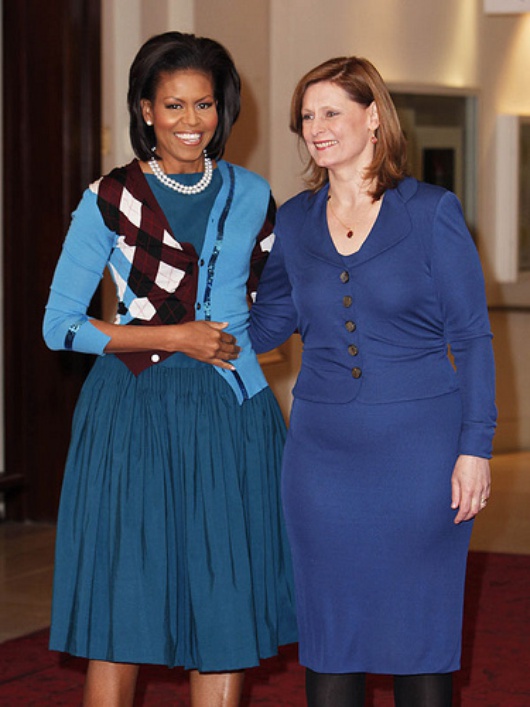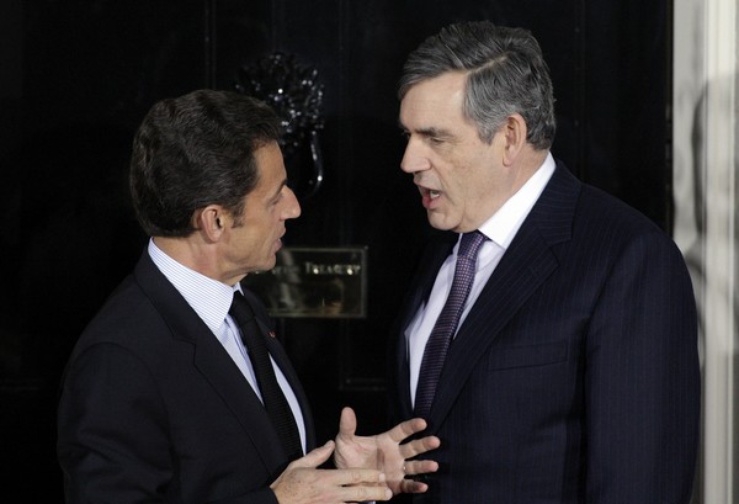
'Historic' G20 in London: a one trillion summit like no other
Published on
On 2 April G20 leaders agreed on a mind boggling trillion dollar plan to tackle the global financial crisis. As US president Barack Obama heads to Strasbourg for a Nato summit, a roundup of the juice and conclusions
Only twice before had the world’s twenty most important industrialised and developing economies - the EU being the twentieth - come together to discuss the global economy, in 2006 and 2008. This time there was a notable difference. US president Barack Obama’s presence did much to bring a sense of excitement for Londoners and the attending media. The G20 wives also added some glamour, French first lady Carla Bruni was wise to stay away, as Michelle Obama stole the limelight outside the summit. The attendance of veteran aid campaigner Bob Geldof also brought some Celebrity to an occasion where some familiar summitry games were played. In the days preceding the final climax of extensive pre-summit negotiations, expectations were lowered and draft copies of the conclusions were leaked.
 No grand summit would be complete without talk of ‘redlines’ and rifts amongst the key participants. French president Nicolas Sarkozy’s threat to walk out was a classic summit tactic (his predecessor Jacques Chirac did the same at an EU summit in 2006). A surprise Sarkozy-Merkel pre-summit press conference to counter-balance an earlier Brown-Obama press conference also revived the old great theme of les Anglosaxones versus the Franco-German alliance. Outside the summit walls, the city of London faced 35, 000 protestors– a regular occurrence for such gatherings of high-level global leaders.
No grand summit would be complete without talk of ‘redlines’ and rifts amongst the key participants. French president Nicolas Sarkozy’s threat to walk out was a classic summit tactic (his predecessor Jacques Chirac did the same at an EU summit in 2006). A surprise Sarkozy-Merkel pre-summit press conference to counter-balance an earlier Brown-Obama press conference also revived the old great theme of les Anglosaxones versus the Franco-German alliance. Outside the summit walls, the city of London faced 35, 000 protestors– a regular occurrence for such gatherings of high-level global leaders.
Unprecedented stops
Leaders agreed on a trillion dollar global deal to tackle the global crisis, surprising pundits with a more detailed and wide ranging set of measures. 250 billion dollars will boost world trade, regulations will be strengthened in a pledge to ‘clean up’ global banking and action will be taken against secretive tax havens, with sanctions used if necessary. IMF resources will also be tripled. British prime minister Gordon Brown declared that it was the ´‘day the world came together to fight back against the global recession’, marking the ‘emergence of a new world order.’ Obama called it ‘historic’ and ‘unprecedented‘, viewing it as ‘a turning point in our pursuit of global economic recovery.’ Such remarks were also echoed by Sarkozy and Merkel..

Elsewhere a weary-looking though upbeat Dominique Strauss-Kahn declared that the IMF (international monetary fund) is ‘back in business‘, as funds were tripled to lend to cash stricken countries, making it a greater partner alongside the G20. Nobody knows if the G20 plan will work. The leaders were clear that there is no quick fix and acknowledge that another summit will take place later this autumn. But, it is also true that the summit’s success will greatly depend on what G20 leaders do when they are back at home. The followup takes place in Washington in November.



